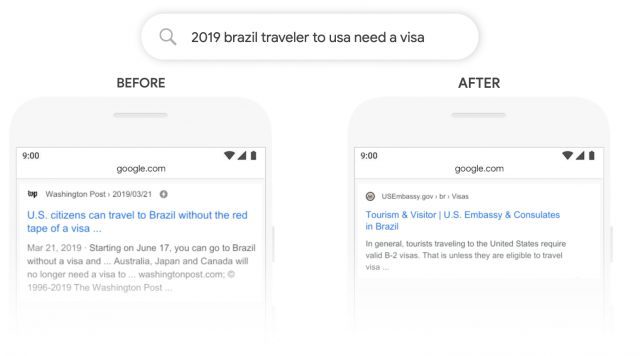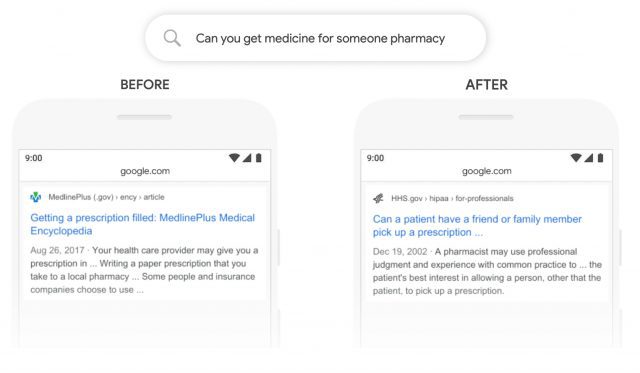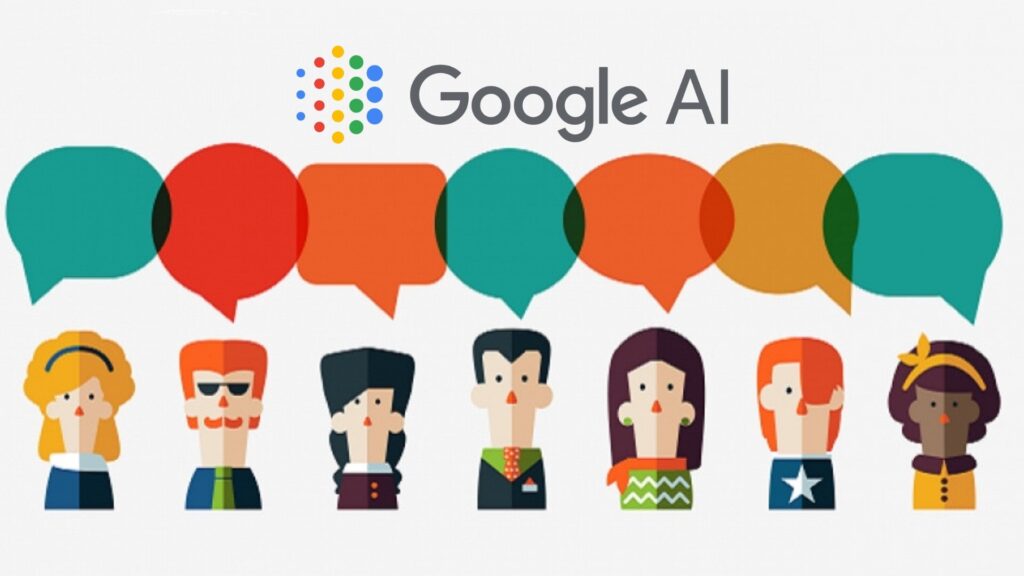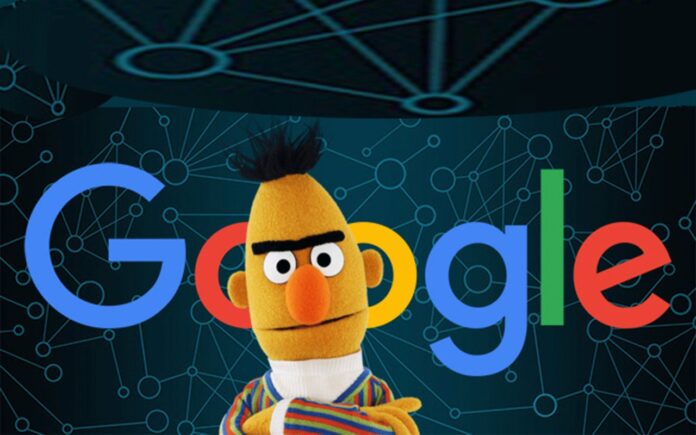With Google BERT update, the world of Search Engine Optimization (SEO) was shaken like a 7.0 earthquake on the Richter scale. After almost 5 years without big news, Google announced the launch of a new BERT update that arrived to continue the evolution of the search engine.
In this article, we are going to tell you everything you need to know about this new update, what changes in the world of SEO with this update and how it can affect you.
What is BERT?
Google finally announced it on October 24, 2019, the incorporation of BERT, an update specifically designed to try to understand a user’s search intention (or Search Intent) in a better way.
What does the acronym mean? Bidirectional Encoder Representations from Transformers (Better keep calling him only BERT, right?). So, BERT stands for Bidirectional Encoder Representations from Transformers.
It is said that this update could affect 10% of all total searches. 10% may seem little, but we are talking about 1 in 10 searches within Google that would be affected by this change.
It is something massive!
In essence, BERT is:
Read More: Stanford NLP PDF
“An algorithm that instead of seeing the user’s searches word for word, interprets the phrase as a whole, which will provide better results for the user”.
Google announced what they called the most important update in five years. The BERT update affects 10% of search queries. What is BERT and how will it affect SEO?
Google is making the biggest change in its search system since the company introduced RankBrain almost five years ago. The company said this will affect 1 in 10 queries in terms of changing the results that are classified for those queries.
Video Credit: https://www.youtube.com/channel/UCp8Kv-cF9YfA-G33CRxv6SQ
BERT is a major Google update
BERT is a technique based on Google’s neural network for training prior to natural language processing (NLP).
According to Google, this update will affect complicated search queries that depend on context.
This is what Google said:
“These improvements are aimed at improving language comprehension, particularly for more natural/conversational language consultations. Since BERT is able to help the Search to better understand the nuances and context of the words in the Searches and to do Match those queries better with useful results.
Particularly for longer queries or long tails, more conversational, or searches where prepositions like “for” and “to” matter a lot to the meaning. Google will be able to understand the context of the words in your query. You can search in a way that seems “natural”.
What is the BERT algorithm?
The patent search algorithm expert Bill Slawski described the BERT algorithm like this:
“BERT is a natural language processing pre-training approach that can be used in large text. It handles tasks such as entity recognition, part of voice tagging, and question-answers among other natural language processes. BERT helps Google understand the natural language text of the Web. Google has opened this technology, and others have created variations of BERT.”
The BERT (Bidirectional Encoder Representations from Transformers) algorithm is a deep learning algorithm related to natural language processing. It helps a machine to understand what the words of a sentence mean, but with all the nuances of the context.
BERT improves understanding of search queries
Google BERT update improves the way Google understands search queries. BERT analyzes search queries, not web pages. Now SEO becomes more important in terms of using words in precise ways. It is possible that the Google BERT update does not help careless content.
It is already installed. BERT started operating this week and will be available shortly. It is being developed for English language consultations now and will be extended to other languages in the future.
Beware of featured fragments:
This will also affect featured shards. Google said BERT is being used globally, in all languages, in featured snippets.
When does Google use BERT?
Google said BERT helps to better understand the nuances and context of words in searches and to match those queries better with more relevant results. It is also used for featured fragments, as described above.
RankBrain is not dead!
RankBrain was Google’s first artificial intelligence method to understand queries in 2015. It examines both the queries and the content of the Google index web pages to better understand the meaning of the words.
BERT does not replace RankBrain, it is an additional method to understand content and queries. It is an additive for the Google ranking system. RankBrain can and will continue to be used for some queries.
But when Google thinks a query can be better understood with the help of BERT, it will use it. In fact, a single query can use multiple methods, including BERT, to understand the query.
How is that?
Google explained that there are many ways in which you can understand what the language of the query means and how it relates to the content of the web. For example, if you write something wrong, Google’s spelling systems can help you find the right word to get what you need.
And/or if you use a word that is synonymous with the actual word that is in the relevant documents, Google can match them.
BERT is another signal that Google uses to understand the language. Depending on what you are looking for, any of these signals or a combination of them could be more used to understand your query and provide a relevant result.
Can it be optimized for Google BERT Update?
It is unlikely at the moment. Google has told us that SEO can’t really optimize for RankBrain. But it does mean that Google is improving in understanding natural language.
You just have to write content for users, as you always do. This is Google’s efforts to better understand the search engine query and make it better match the most relevant results.
Why we care, not only because Google said this change “Represents the biggest leap forward in the last five years, and one of the biggest leaps forward in the history of the search.”
We are also interested because 10% of all queries have been affected by this update. That is a great change! Unconfirmed reports of algorithm updates have been seen mid-week and earlier this week, which may be related to this change.
Google is taking another step in the search for the best interpretation of what the user is really looking for.
Luckily, Google left some very useful examples with the before and after BERT, examples which we will review below.

BERT #1 Example:
The first example is made with the intention of searching for a Brazilian who wants to get his visa in the United States.
Before, the user could find an informative post from a well-known US newspaper.
Now, thanks to the BERT Update, you will find a government page that will give you more information about visas.

BERT #2 Example:
This is perhaps the strongest example and the one I liked the most.
Before, the user looked for “you can get medicine from someone in a pharmacy” (Semi-literal translation).
Due to this search, Google did not deliver the expected result.
The user, what he/she wants to know, is if he can withdraw medicine for another person in a pharmacy.
Now, the user gets information about getting prescriptions for a friend or relative, which is exactly what the user wanted.
How to be aware of these changes?
If you do SEO or if you have a website, what interests you most every time there is an update is how it impacts you.
Nobody wants to see an update that destroys their positions on Google.
The good thing about this update is that is a positive update.

What do we mean by this?
Due to this update, nobody will get penalties. If due to this update you lose many positions, it is probably because your content does not respond to the search that the user was performing.
As we always say, the best thing you can do is make sure your content is quality, well done and truly helps users.
How to know if my website was affected by BERT?
The best way to find out is to run a comparative analysis on platforms such as Google Search Console or Ahrefs or Semrush.
If we are in Ahrefs we choose a domain and we go to Organic Search – Movements.
We filter by the movements that decreased and we obtain the results that lost rankings according to the established period of time:
There you will have to analyze if:
- For what searches did you effectively lose those positions
- Why did it happen? (Content that does not respond to the search, thin content, BERT)
- To see the exact searches of the users who arrive at your website it is best to use Search Console.
If your traffic falls after this…
We recommend you do not lose your temper.
However, Google updates usually take weeks and months to become effective.
Analyze if it is possible that your content does not respond to the user’s search intention and what you can do to do it without having to lose positions for the other keywords for which you already position that content.
Undoubtedly, the better the user’s search intention is answered, it seems positive.
This change can be very important to find information faster.
We repeat, this update has no negative aspect. If you lose positions in the SERPs in a loud way, it is simply because your content is not relevant to that search.
That easy to understand!
READ MORE: How to Remove Negative Google Search Results?
ALSO READ: SEO trends for 2020 in Google: That you need to know
READ ALSO: Google Maps for iPhone: Real-time traffic reports arrive now




























